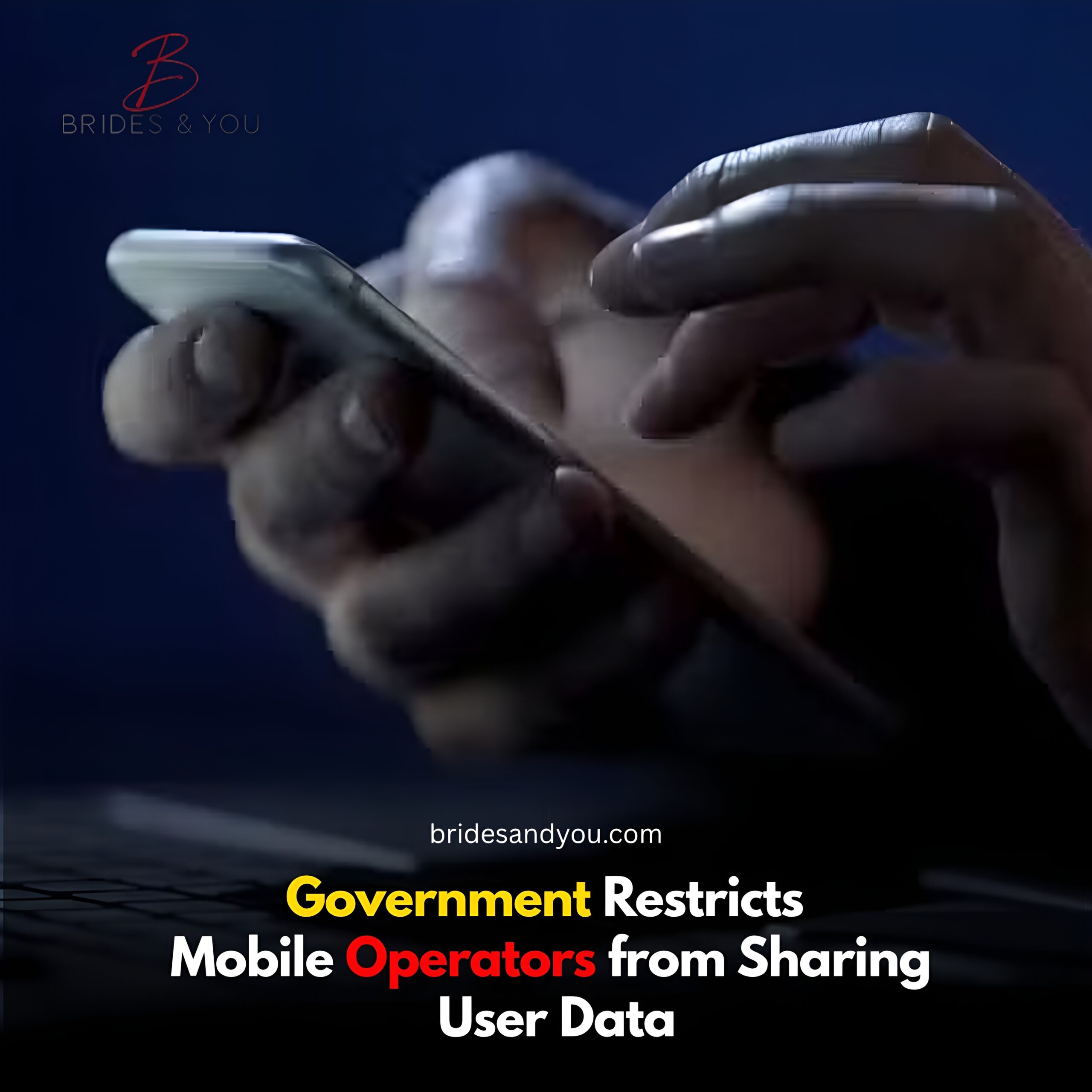Now Reading: Government Bans Mobile Operators from Sharing User Data
-
01
Government Bans Mobile Operators from Sharing User Data
Government Bans Mobile Operators from Sharing User Data

In a major development, the Government of Pakistan has taken a firm stand to safeguard citizens’ privacy by prohibiting mobile operators from sharing user data with any third parties. This move highlights the government’s growing concern about protecting personal information and ensuring responsible use of digital data.
The Minister-in-Charge of the Cabinet Division recently informed the National Assembly that telecom operators are legally bound by confidentiality clauses in their licenses. These rules strictly prevent them from disclosing customer details to outside entities — even to their own partner companies or subsidiaries — unless specific legal conditions are met.

Strict Confidentiality Clauses Under Telecom Licenses
Telecom operators in Pakistan operate under detailed license agreements that emphasize consumer data protection. According to Clauses 7.7.1 and 7.7.2 of the Long Distance and International (LDI) and Local Loop Licenses, companies can only share user data in very limited circumstances.
These include:
- Debt collection purposes
- Service provisioning between operators
- Legal obligations under government directives
- Situations where customers give prior, informed consent
Even in these cases, the shared data must be minimal and relevant to the specific purpose. Any misuse or unnecessary disclosure is considered a clear violation of license terms and data protection regulations.
Telecom Consumers Protection Regulations, 2009
The government’s stance is further strengthened by Regulation 16 of the Telecom Consumers Protection Regulations, 2009. This rule requires operators to take all necessary steps to ensure the confidentiality of consumer information.
Moreover, Clause 10.1 of the Third Party Service Provider License focuses on protecting users against:
- Fraud and data theft
- Privacy breaches
- Poor customer service and delays
License holders must have an effective complaint-handling system to resolve consumer issues quickly and fairly. This ensures that individuals’ data is not mishandled, and that any potential breaches are addressed promptly.
No Data Sharing Without Informed Consent
The government made it clear that no user data can be shared without explicit and informed consent from the consumer. Telecom companies must fully explain:
- Why the data is being collected
- Who will have access to it
- How it will be used
Without this transparent communication, any disclosure becomes illegal. This rule places the responsibility squarely on telecom operators to act ethically and prioritize user privacy at all times.
Legal and Ethical Responsibility of Operators
The Ministry emphasized that any unauthorized disclosure of personal information would be treated as a serious breach of both license terms and consumer protection laws. Operators are expected to manage data responsibly and ensure strict compliance with privacy laws.
This policy also aligns with international standards for data protection, reflecting Pakistan’s growing commitment to digital safety and consumer trust in the telecom industry.
Pakistan Telecommunication Authority’s Role
The Pakistan Telecommunication Authority (PTA) has taken several initiatives to address the increasing number of fraudulent communications and privacy concerns. The PTA launched massive awareness campaigns, sending more than 1.065 billion public messages warning users about scam calls and fake SMS activities.
Additionally, the PTA, in collaboration with the State Bank of Pakistan (SBP) and the Securities and Exchange Commission of Pakistan (SECP), introduced special ringback tones. These tones play short awareness messages whenever users make calls, reminding them to be cautious about sharing personal information with unknown callers.
Blocking Fraudulent Numbers and Strengthening Oversight
The PTA has also been proactive in blocking masked Universal Access Numbers (UANs). Many fraudsters have used these numbers to impersonate banks and trick users into revealing sensitive financial details. By blocking such UANs, the PTA aims to reduce cyber fraud and boost public confidence in mobile communication networks.
Furthermore, the PTA has launched an online Complaint Management System (CMS). This system allows users to report suspicious calls, SMS scams, or data misuse cases directly. Each complaint is tracked and investigated, ensuring timely support and resolution for victims.
Protecting Consumer Privacy in the Digital Era
In today’s world, where mobile phones store everything from personal photos to banking details, data protection is more important than ever. This new ban sends a strong message that user privacy is not negotiable.
By enforcing strict guidelines, Pakistan joins the list of countries actively prioritizing data security. This decision will not only protect individuals from fraud but also strengthen trust in telecom companies, which is vital for the future of digital innovation.
What This Means for Mobile Users
For ordinary mobile users, this ban means:
- Their personal data is safer than before.
- Operators cannot share or sell information to advertisers or third parties.
- Any data sharing must be based on informed consent.
- Complaints about misuse can be filed with PTA’s CMS for quick action.
These steps encourage users to feel more confident while using online banking, mobile wallets, and digital platforms that rely on telecom networks.
Conclusion
The government’s ban on mobile operators from sharing user data is a powerful step toward creating a safer digital environment. It ensures that the telecom industry operates transparently and that citizens’ personal information remains private and protected.
As Pakistan’s digital ecosystem continues to expand, such proactive policies are essential to maintain public trust, data integrity, and accountability within the telecom sector.










